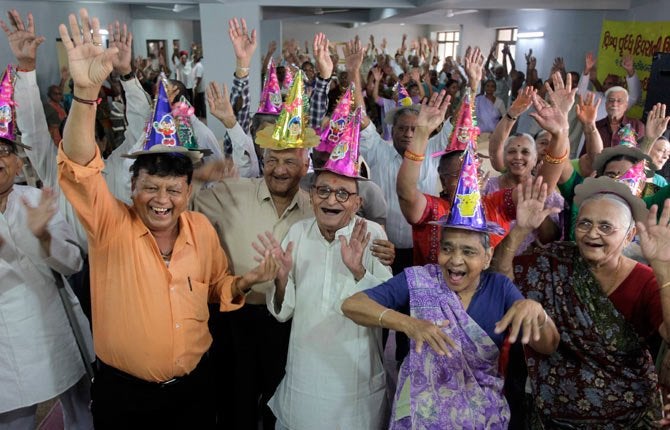On June 15, the 45th General Assembly of the Organization of American States (OAS) approved the Inter-American Convention on Protecting the Human Rights of Older Persons, the very first legally-binding instrument that directly protects the rights of older persons, including their right to health and other health-related human rights. It has set the Americas apart from the rest of the world.
The convention promotes, protects, and ensures the equal acknowledgement of all human rights and fundamental liberties of older people so that they can be fully included and integrated, as well as participate in the community. As the first international binding instrument to strengthen the human rights of older persons, the convention provides specific measures to regulate areas related to health and healthy aging, such as the protection of older people’s right to health, to have consent and information related to treatments, to palliative care, and against isolation, discrimination and abuse.
During the signing, OAS Secretary General Luis Almagro expressed: “This is a very important step for everyone. Our slogan of ‘More rights for more people’ is fully in the logic of the Convention, which reaffirms the hemispheric dimension of our work, in this case the commitment to ensure the full enjoyment of the rights of older people, taking into account their needs and specific requirements.”
According to the World Health Organization (WHO), “populations around the world are rapidly ageing.” It is expected that between 2000 and 2050, people aged 60 and over will grow from 11% to 22% globally. In the Americas, there are more than 150 million people over 60 years old, of whom 60% are female. By 2020, the estimated population of older people in this region will reach 200 million.
WHO recognizes that this change in global demographics should be considered a positive development, as it signifies a tremendous advancement in tackling a number of global health issues, such as childhood disease and maternal mortality. However, with it comes great challenges. Many of them reflect the level of neglect for the needs of older persons that is present in many societies across the world. This includes their health needs.
In the Americas, it is expected that more than half of the older adults will live in Latin America and the Caribbean, where currently close to 50% of the elderly lack resources to finance their day-to-day needs, including access to long-term care, medical treatment, housing, and recreation.
The truth of the matter is that as the size of this population increases, countries will have no choice but to address and understand the health needs of older persons at all levels. There should be increased efforts by society as a whole to address the existing and lamentable issue of “elder abuse” (or mistreatment of older persons), which stems from society’s neglect and discrimination against this population. Considering all this, the convention constitutes one step forward.
Under the convention, OAS Member States are to:
- Adopt measures to prevent, punish and eradicate practices such as isolation, abandonment, prolonged physical restraints, overcrowding, denial of nutrition, and inadequate medical treatments;
- Take steps so that public and private institutions offer non-discriminatory access to comprehensive care to older persons, including palliative care, avoiding isolation, properly managing problems related to fear of death among the terminally ill, and avoiding pain and unnecessary suffering;
- Establish a procedure that enables older persons to expressly indicate in advance their will and instructions with regard to health care interventions;
- Design measures to enable older persons to enjoy a comprehensive care system that will ensure their health, social services coverage, nutrition and food safety;
- Design and implement public health policies that ensures access to needed medicines and affordable health care benefits for older persons with non-communicable and communicable diseases, including sexually transmitted diseases; and
- Take measures to ensure equal access for older persons to basic public drinking water and sanitation services, among others.
As the first international binding instrument that specifically strengthens the human rights of older persons, the Inter-American Convention is an important advancement at regional level and a positive precedent at global level.
However, law does not achieve its aims without its implementation on the ground. Focusing on the discrimination and violations of the human rights of older persons, the convention has the potential to be a powerful force for change at regional and national levels and also to inform the different approaches taken by each country on the issue as long as it is implemented. To protect the health needs of older persons and comply with their obligations under the convention, governments will need to ensure the existence and application of intersectoral public health policies to provide comprehensive care, including health promotion, prevention, care and management of diseases at all stages, and the rehabilitation and palliative care of older persons to guarantee them a life of dignity and well-being.




